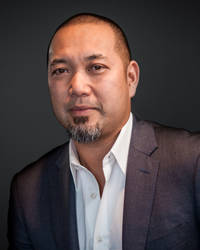2015 Winner: Pariveda Focuses on Its People
- By Gladys Rama
- October 14, 2015
Nowadays, it seems anithetical for any modern company to focus on its employees first and on its customers second. But that philosophy has propelled Pariveda Solutions, a Microsoft National Solutions Provider based in Dallas, from $1 million in revenue in 2004 to more than $70 million in 2014.
"The important thing to know is that we focus first and foremost on talent development. The development of our people. And that prioritizes [development] activities ahead of even our clients, if you can believe that," says Liem Vu, managing vice president of the West Region at Pariveda.
It isn't that profitable project outcomes aren't top-of-mind for Pariveda; it's that what's good for employees will ultimately be good for clients, too, in Pariveda's way of thinking. As Joe Davey, a vice president working out of Pariveda's Seattle office, puts it: "The belief is -- and I think it's borne out in the work that we've done -- is that if you support people, if you invest in them, good things will come from your [client] engagements. Your clients will benefit. And overall, that investment in your workers will start to pay dividends."
Those dividends are in the ballpark of 15 percent to 20 percent year-over-year revenue growth since 2012, project margins in excess of 50 percent, and referral business accounting for about 85 percent of annual revenue. Pariveda currently employs roughly 400 billable consultants across its nine U.S. offices, with plans to continue to grow headcount. Clearly, there's something to this people-first approach.
 "The important thing to know is that we focus first and foremost on talent development. The development of our people. And that prioritizes [development] activities ahead of even our clients, if you can believe that."
"The important thing to know is that we focus first and foremost on talent development. The development of our people. And that prioritizes [development] activities ahead of even our clients, if you can believe that."
Liem Vu, Managing Vice President, West Region, Pariveda Solutions
Although many other consulting companies have training programs in place, Vu emphasizes that Pariveda's approach, which is centered on what it calls an "Expectations Framework," goes beyond the usual class-based learning regimen. "We don't look at it as training. We look at it as developing on people's capabilities, not necessarily skills," he says.
Pariveda's Expectations Framework gauges consultants on five areas: Effectiveness, Business of IT, Relationships, Leadership and Others First. The framework is aimed at building consultants' "core capabilities" in each of those areas, according to Vu.
The distinction between capabilities and skills is an important one to Pariveda. "Most consulting companies -- and I've been with a number of them -- they're focused on developing skills. I'm going to get you trained up on .NET, Oracle, SharePoint or whatever," he says. However, Pariveda's Expectations Framework assumes that its consultants will learn those skills along the way; the priority is ensuring that consultants are capable of being effective advisers. Meaning, according to Vu, "that they have the networks in the marketplace that allow them to engage with clients and offer advice and help."
The consultant-development process isn't just an internal one; it also extends outward to Pariveda's relationships with its clients and determines what kinds of projects it undertakes. The company matches projects to consultants "in a very deliberate manner," Vu says, that's aimed at moving those particular consultants up the Expectations Framework.
Pariveda also favors shorter-term projects over longer-term ones, which is notable given the conventional wisdom that longer-term projects are a better guarantor of revenue than shorter-term projects. Davey explains that this strategy, while counterintuitive, is also in service of Pariveda's over-arching goal of employee development. For consultants to be eligible for promotions, he says, they need to become familiar with multiple technologies, which is hard to do if they're locked in to a single project for a long period of time. Long-term projects might be good for a company's bottom line, but "it's not always the best thing for your employees, especially consultants who are trying to better themselves," he says.
And, as Vu points out, shorter projects (or longer projects "chunked up" into shorter ones) are frequently better for customers, too. The end goals of long-term projects are often outpaced by changes in a client's industry, technologies and business processes. By the time a long-term project hits its end date, its originally stated goals may no longer fit the company's current situation. Shorter projects have more measurable and useable value for customers, he says.
Read the full 2015 RCP Rocket Award winners feature here.
<< Back to the RCP Rocket Awards Page